‘Annie Hall’: A timeless exploration of the heart, wrapped in wit and wisdom

Reflecting on "Annie Hall" is like revisiting an old friend—familiar yet complex, nostalgic yet blurred by the passage of time. Woody Allen's masterpiece has turned 47 today, and it has always been more than just a rom-com; it's a lens into the intricate dance of love and life, with all its quirks and imperfections.
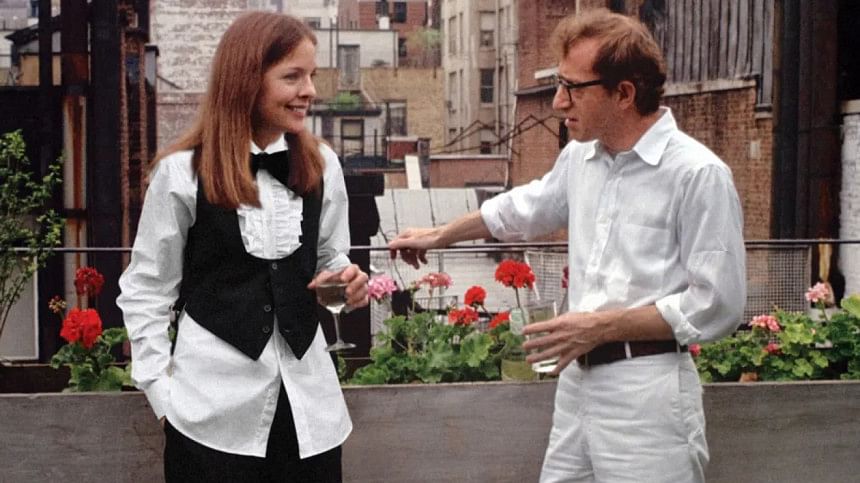
When I first discovered "Annie Hall," I was 15, and it was love at first watch. The clever wit, the unconventional narrative structure—breaking the fourth wall and embracing a non-linear storyline—captivated my teenage cinephile heart. But like any enduring relationship, my feelings toward the film have evolved over time.
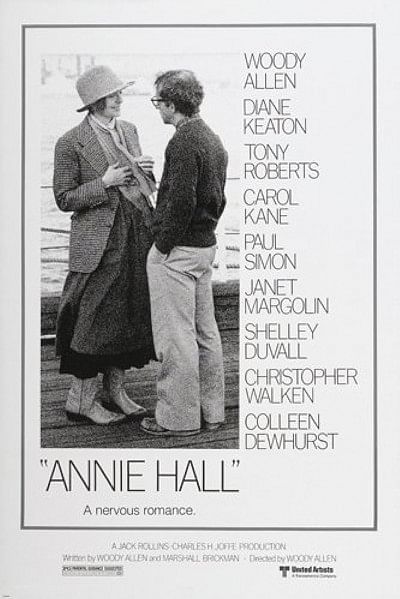
Directed by Woody Allen, "Annie Hall" (1977) is a groundbreaking romantic comedy that follows the relationship between Alvy Singer (Woody Allen), a neurotic Jewish comedian from New York, narrating his tumultuous romance with the free-spirited Annie Hall (Diane Keaton).
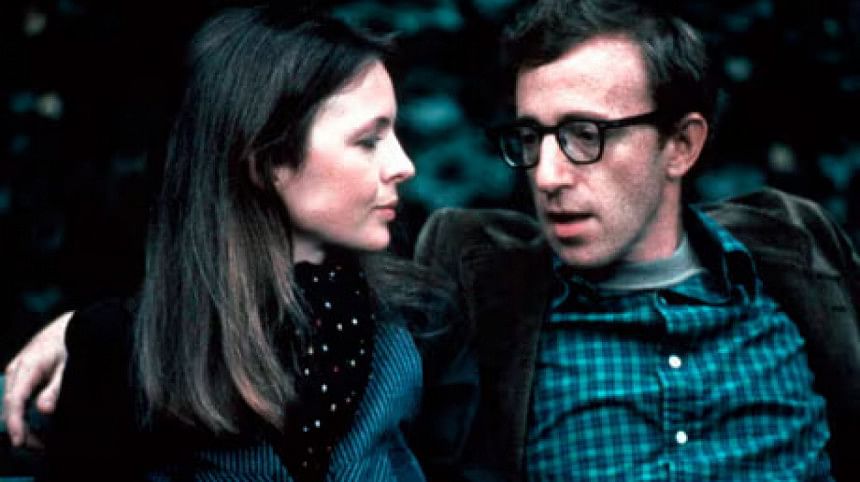
Throughout the film, Alvy and Annie grapple with their differences and personal quirks. Annie evolves from a naive, chaotic young woman into a more self-assured individual, while Alvy struggles with his neurotic tendencies and fear of commitment.
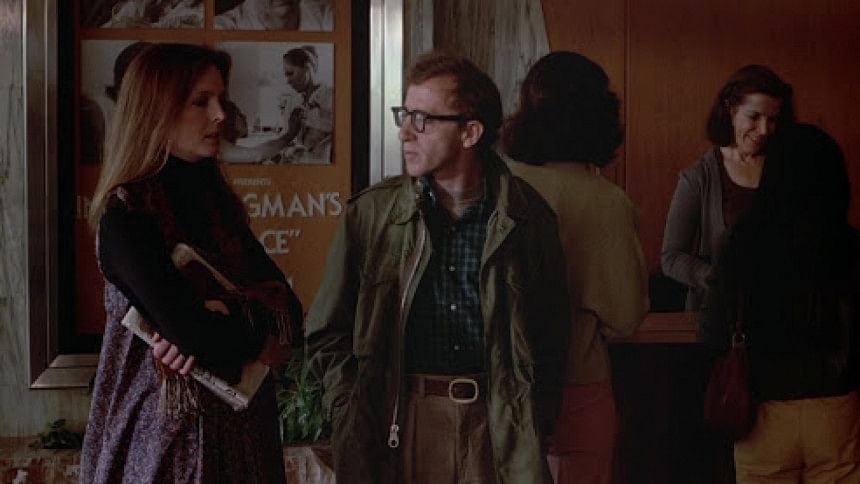
"Annie Hall" is celebrated for its innovative storytelling, using surreal dream sequences while capturing the essence of New York City in the 1970s and diving deeper into themes of mortality, happiness, and the search for meaningful connections.
The brilliance of "Annie Hall" lies in both its script and direction, which together form a groundbreaking and influential piece of cinema. Woody Allen's vision as a director and screenwriter shines through in this film, redefining the romantic comedy genre and pushing the boundaries of storytelling.
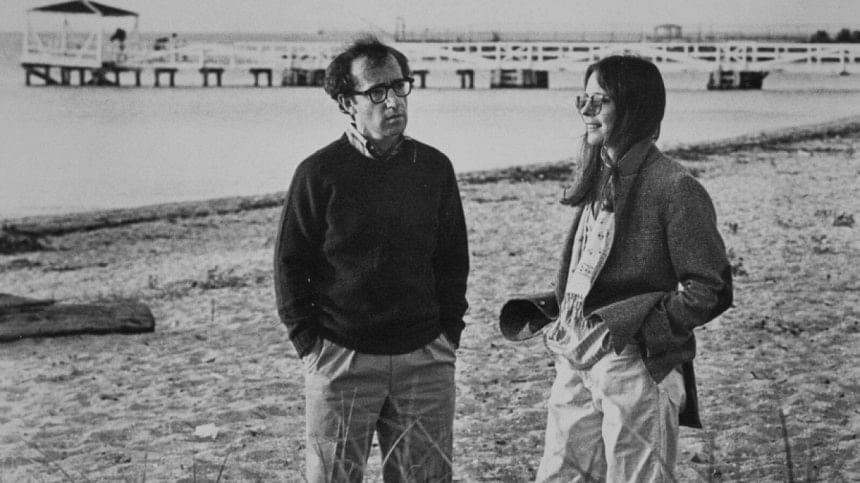
Allen's script for "Annie Hall" is a testament to his keen understanding of human relationships and his ability to blend humour with profound introspection. The dialogue is sharp, witty, and filled with cultural references that add depth to the characters and their interactions. Allen's use of language captures the nuances of everyday conversations, making the characters feel authentic and relatable.
The non-linear narrative structure of the film is a bold choice that reflects Allen's experimental approach to storytelling. By weaving together flashbacks and present-day scenes, Allen invites viewers to piece together the timeline of Alvy and Annie's relationship, mirroring the complexities of memory and emotion.
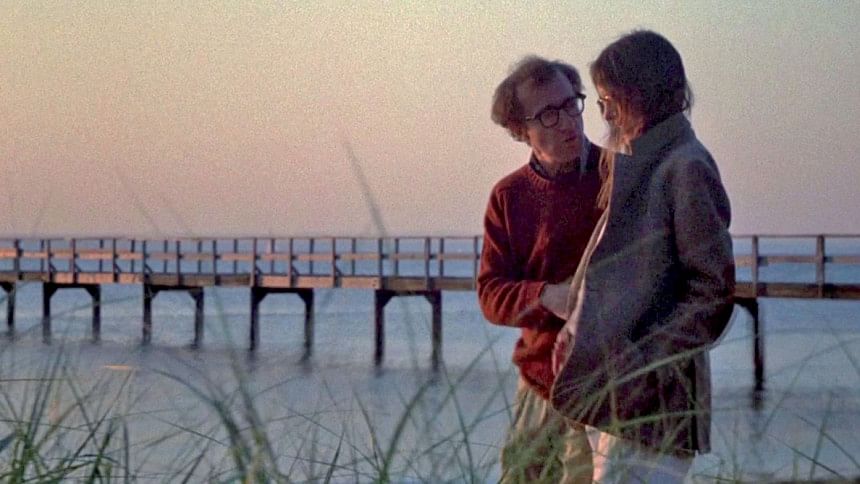
Allen's use of visual metaphors and symbolism adds layers of meaning to the narrative, inviting audiences to interpret the film on multiple levels.
Alvy Singer's breaking of the fourth wall not only adds a comedic element but also establishes an intimate connection with the audience, inviting them into Alvy's inner world of thoughts and anxieties.
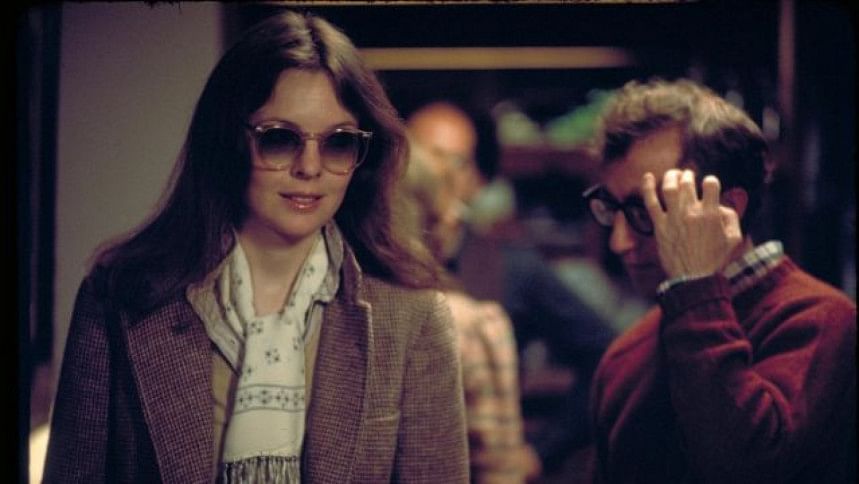
Diane Keaton's performance in "Annie Hall" is a masterclass in blending vulnerability, wit, and charm. She captures Annie's endearing naivety and childlike wonder, juxtaposed with moments of profound contemplation and growth. Keaton infuses Annie with a unique blend of eccentricity and relatability, making her character both captivating and empathetic.
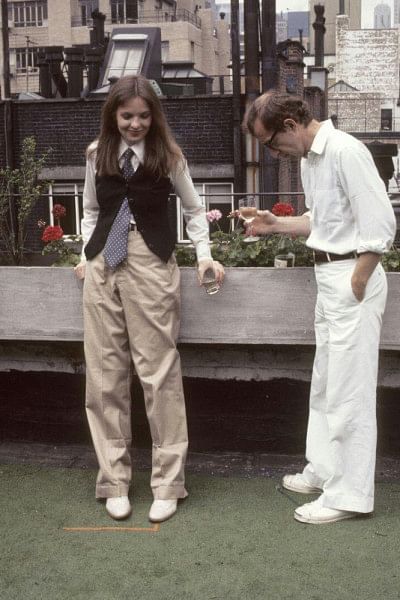
Keaton's on-screen chemistry with Woody Allen is palpable. Their dynamic feels authentic and lived-in, conveying the genuine ups and downs of a romantic relationship. The way Keaton portrays Annie's interactions with Alvy—whether they're engaging in witty banter or navigating moments of conflict—feels remarkably genuine and heartfelt.
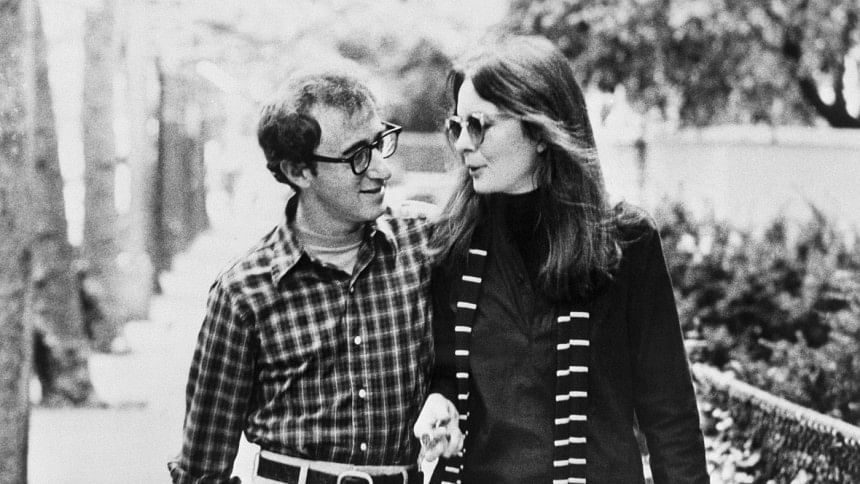
The lobster-cooking sequence, or the scene in the bookshop where Annie's quirky mannerisms and endearing clumsiness shine through, is one of the standout scenes in the film. Keaton's comedic timing and physicality encapsulate Annie's unique charm and make it one of a kind.
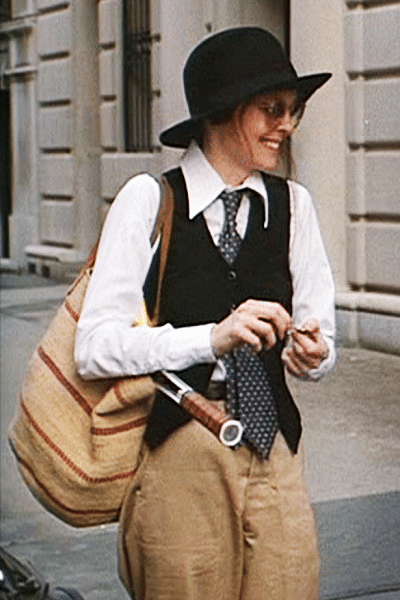
Additionally, Keaton's fashion choices for Annie—particularly her signature menswear-inspired wardrobe—became synonymous with the character and influenced fashion trends at the time. This sartorial decision was not only a stylistic choice but also a reflection of Annie's non-conformist personality and progressive mindset.
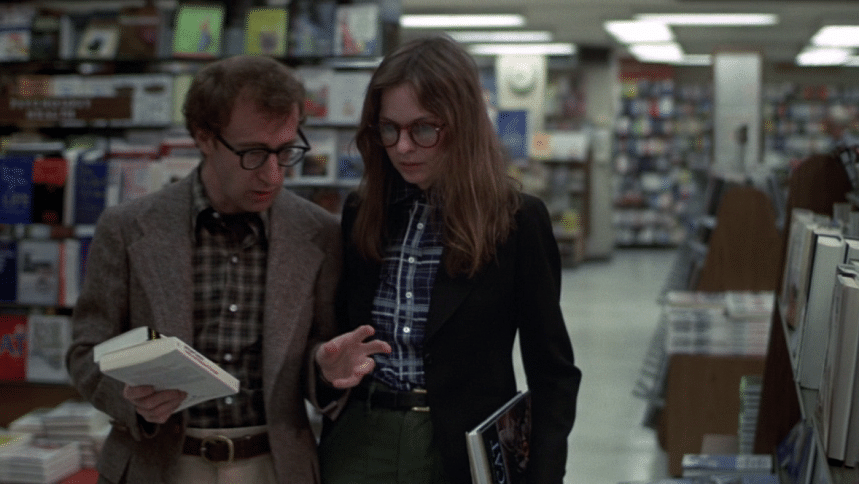
Keaton's portrayal of Annie earned her the well-deserved Academy Award for Best Actress, a testament to her ability to bring depth and authenticity to a character who evolves from a quirky, uncertain young woman into a more self-assured individual throughout the film. Her performance in "Annie Hall" remains a shining example of how a talented actor can elevate a character and contribute to the enduring legacy of a classic film.
Besides its comedic elements, "Annie Hall" addresses profound existential questions and portrays the complexities of human relationships with honesty and humour. The film's closing montage beautifully encapsulates the bittersweet nature of love and nostalgia.
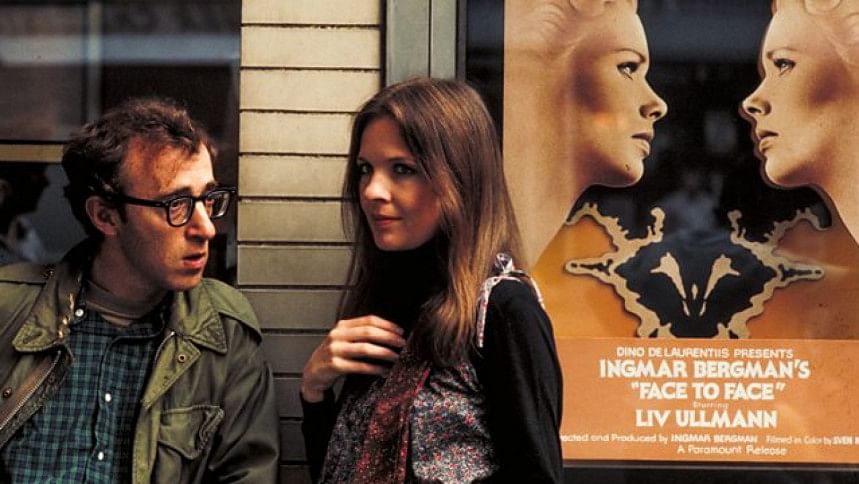
However, as much as I adore this film and it's narrative brilliance, I cannot ignore the discomfort sparked by certain scenes, particularly those involving Alvy's questionable behaviour. The film's depiction of sexual curiosity, especially in the context of a young boy's actions, feels jarring when viewed through a modern lens. Likewise, Alvy's adult behaviour—such as his self-centredness and insensitivity—can be challenging to reconcile with our contemporary values.
Yet, as I grapple with these aspects, I find myself contemplating the notion of holding classic art to modern standards. It's a delicate balance of acknowledging problematic elements while appreciating the film's historical context and artistic merit. "Annie Hall" is a product of its time—a satirical take on romance and relationships that reflects the cultural attitudes of the 1970s.
Despite its imperfections, "Annie Hall" remains the pinnacle of romantic comedy. It's a film that continues to spark conversation, reminding us that love is messy, complicated, and oh-so-human. Woody Allen's masterpiece is not just a movie—it's a timeless exploration of the heart, wrapped in wit and wisdom.

 For all latest news, follow The Daily Star's Google News channel.
For all latest news, follow The Daily Star's Google News channel. 







Comments